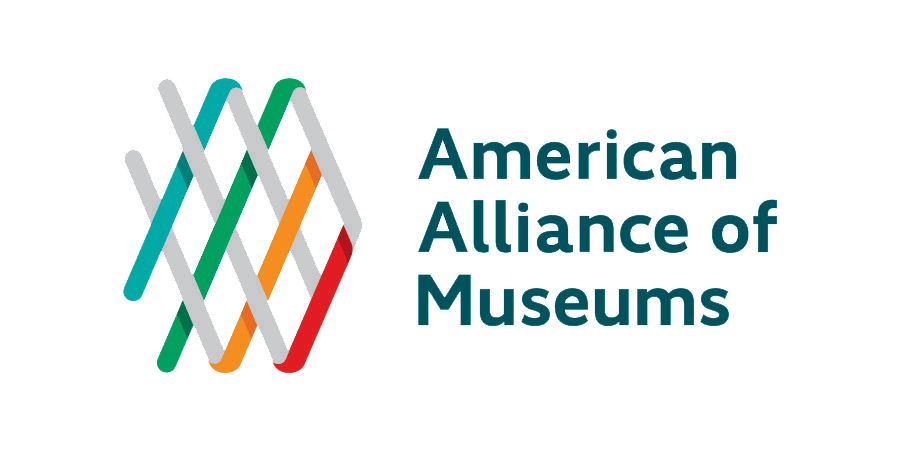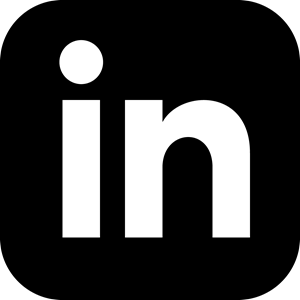2025 Annual Meeting & MuseumExpo Open Call for Proposals

2025 CALL FOR PROPOSALS
The AAM 2025 call for session and poster proposals is now CLOSED. AAM will not accept new proposals for AAM 2025.
IF YOU ALREADY SUBMITTED A SESSION:
- If you do not see the submit button on the submission form, this means the proposal has been finalized and submitted for review by the 2025 Content Advisory Committee.
- A PENDING status means the proposal has been submitted and is pending review by the 2025 CAC.
- A WORK IN PROGRESS status means the proposal has NOT been submitted for review and must be submitted by the extension date deadline of November 8, 11:59 PM PT.
- Presenter login issues? Forward the title of your proposal and the presenter’s name to aamproposals@aam-us.org. This is the same for anyone having difficulties adding or attaching presenters to a proposal. Please provide the name, professional title, institution name, and email address of the presenters to be added to the proposal.
- If you have questions about your proposal or need assistance, please email aamproposals@aam-us.org. Please include your proposal title and as much detail as possible.
- Notifications will be sent early January 2025.
ABOUT THE THEME
Museums & Trust
Museums have long inspired high levels of public trust, and this continues to hold true in our contemporary information ecosystem. In 2021, for instance, a report commissioned by the American Alliance of Museums found that the public considers museums the second most trustworthy source of information after friends and family, surpassing even researchers, scientists, news organizations, and the government. This finding underscores the unique position museums hold in society as stewards of knowledge, culture, science, and history—areas where credibility and reliability are paramount.
Museums earn this trust in various ways. By increasingly embracing inclusive decision-making processes and collaborating with communities, they present diverse narratives and viewpoints, reflecting the complexities of human history and society. In upholding the museum field’s standards and ethics, they commit to principles like transparency, integrity, and accountability. They also bridge the gap between complex concepts and public understanding by disseminating cutting-edge research and scholarship.
In an era marked by mistrust and misinformation, these strengths present a rare ability to counterbalance the proliferation of false narratives and polarized perspectives. By upholding rigorous standards of research, authenticity, and inclusivity, museums can not only preserve the integrity of historical and scientific accounts but also cultivate a culture of trust essential for a healthy, empathetic, and informed society. But to do so, we must maintain our credibility proactively, embracing thoughtful, transparent, and collaborative practices that will defend against influences like bias, resource challenges, abuse of power and social injustice.
As the host site for the annual meeting, Los Angeles stands out as one of the most ethnically and culturally diverse cities in the US. It serves as a hub for innovation and progress and is home to a rich array of museums and cultural institutions committed to authenticity, representation, and inclusion, which enhance trust.
Building upon these principles, AAM invites session proposals that explore how museums address these challenges and fulfill their missions in building and maintaining public trust. Proposals should encompass various aspects of museum work, including their missions, operations, standards, and practices that validate and reaffirm their role as trusted institutions. To guide proposal development, consider addressing any of the following questions:
1. How can museums align their missions with their roles as stewards of historical and scientific trust, educational hubs, and advocates for cultural understanding?
2. What practices can museums implement to maintain the highest standards of historical accuracy and scholarship in museum exhibitions, curation, and interpretation?
3. How can museums keep up with the latest scientific and technological advancements to inspire change and innovation?
4. What strategies can museums employ to actively engage communities in their practices and ensure the responsible representation of diverse cultures?
5. What protocols for handling and preserving artifacts can guarantee accurate interpretations and respectful treatment?
6. How can museums actively seek visitor feedback to understand and address expectations regarding nuanced narratives, educational content, and cultural representation?
7. How can museums incorporate interactive elements or digital technologies to enhance visitor experience and educational outcomes while maintaining factual integrity?
8. How can museum staff be equipped with the necessary skills and knowledge to uphold the institution’s commitment to historical accuracy, educational excellence, and cultural inclusivity?
9. How can meaningful collaborations with communities strengthen cultural and scientific trust, ensuring that museums are inclusive spaces for all?
10. How can museums involve community voices in decision-making processes, particularly in matters related to cultural representation and heritage preservation?
11. How can museums adopt mechanisms to regularly reflect on their practices and adapt to evolving societal expectations, ensuring continuous learning and improvement in building trust?
Proposals can be submitted in one of the following areas:
Tracks
Purpose
Proposals in this category explore how museums articulate and demonstrate their mission, vision, and core values to foster trust among stakeholders through organizational culture, governance structures, and leadership strategies aligned with the museum’s mission. Potential topics can include strategic planning; community partnerships; diversity, equity, accessibility, and inclusion (DEAI); board governance; leadership development; implementation of mission-driven initiatives; organizational resilience; and change management.
Practice
Proposals in this category address the methodologies and approaches employed by museums in such areas as education, exhibitions, curation, and collections stewardship to seek truth, validate information, and uphold integrity. Potential topics include research methodologies, object-based learning techniques, bias mitigation, cultural sensitivity, visitor evaluation, environmental stewardship, application of emerging technologies such as virtual reality and augmented reality, and consensus-building.
Process
Proposals in this category focus on the guidelines, protocols, processes, or ethical frameworks governing museum operations that engender trust, in areas such as collection management; facilities management; conservation; financial management; curation and research; education; interpretation; ethics; representation; and diversity, equity, accessibility, and inclusion. Potential topics can include sustainable practices, technology integration (e.g., virtual reality and augmented reality), visitor data use, digital or physical preservation, cybersecurity, accessibility standards, facility design, collections management, human resources, and evidence-based research.
Programs
Proposals in this category examine initiatives, outreach efforts, and programs developed by museums to engage diverse audiences and communities; foster dialogue, understanding, and collaboration; leverage technology; forge interdisciplinary or cross-disciplinary approaches; and strengthen community partnerships. Potential topics include staff and volunteer development, intergenerational engagement, community-based projects, social justice initiatives, civic engagement, and organizational or community trust-building endeavors.
Preparing Your Proposal
Session Proposal Formats
Your proposal should fit into one of the following format types:
Roundtables: These one-hour facilitated roundtable discussions will occur on May 7 and 8, 2025. This experience will allow attendees to connect with colleagues in-person through interactive programming designed to expand their networks. They will share challenges, successes, and new ideas while getting inspired to learn more. Facilitators will be knowledgeable in a topic area that aligns with one of the 2025 thematic tracks and is prepared to lead and guide roundtable conversations that stimulate thoughtful discussions. A facilitator may also ask participants to brainstorm in workgroups, collaborate on a project, or simply share stories. No slides will be used in roundtable sessions. Handouts or other resources are preferred. There is a limit of 6 facilitators for this format.
Sessions: These traditional one-hour presentations will occur on May 7 and 8, 2025. Explore programming that will include professional development, learning, and conversations relevant to the four 2025 tracks. Presentations may include storytelling, workgroups, panels, or standard instruction. Attendees should leave inspired and challenged to amplify their impact in their museums or communities. These sessions generally include a slide presentation with optional handouts and resources. Presenters should include research and evaluation data in their proposals and presentations. There is a limit of 5 presenters for this format.
Flash Sessions: These 25-minute sessions occur on May 7, 8, and 9. These brief presentations allow for the sharing of successful case-specific examples, or niche conversations that contribute to the advancement of the museum field relevant to the four 2025 tracks. Flash presentations may include a compact slide presentation with optional handouts and resources. Presenters should include research and evaluation data in their proposals and presentations. There is a limit of 2 presenters for this format.
Workshops: These 1.5-hour workshops will occur on May 9, 2025. Attendees will be able to deepen their practice through hands-on learning. Workshops will help participants apply practices and principles that contribute to Museums and Trust within their unique context and community. Workshops will focus on the “how-to” and provide attendees with tangible tools and outcomes to take with them. Workshops provide an hour of presentation with an additional 30-minutes for workgroups, breakouts, or discussions. These sessions generally include a slide presentation with handouts and resources (highly recommended). Presenters should include research and evaluation data in their proposals and presentations. There is a limit of 6 presenters for this format.
Learning Lab Workshops: These 3-hour workshops will occur May 7, 8, and 9, 2025. Learning Labs will offer foundational and practical learning techniques specific to a museum role, or type. Learning Labs will include theoretical instruction, practical exercises, group discussions, and hands-on activities to enhance attendees’ knowledge, skills, and understanding of a topic that may align with the AAM 2025 theme or advance the field with structure-based learning. Attendees should leave these learning lab workshops equipped with the educational resources and methods to apply to their work, institutions, or programs. Learning Labs should include slide presentations, handouts, or resources. There is a limit of 6 presenters for this format.
Poster & Poster Talks: These eye-catching visual representations of research, programs, or data are printed and displayed in the MuseumExpo hall. Poster presenters may be invited to provide a 10-minute talk. There is a limit of 2 presenters for this format.
Questions to help you prepare your proposal
Who’s presenting with me?
AAM is committed to diversity, equity, accessibility, and inclusion. Presenter panels and their institutions should be diverse, inclusive, and provide varying perspectives. Be sure to consider where diversity is represented in the demographic areas of the selected panelists.
How does my proposal connect to the AAM theme?
Be clear in your proposal description while highlighting the connection to the theme: Museums & Trust. You will be asked to describe how you intend to interact with the audience, and what the attendee will gain by attending your proposed roundtable, session, flash, workshop, or poster.
Who’s my audience?
Identify the intended audience for your proposal. If your proposal is selected, this information will help attendees identify the content that addresses their professional development needs.
2025 CONTENT ADVISORY COMMITTEE REVIEW
The 2025 Content Advisory Committee will host an open call for proposals September 23, 2024. The Content Advisory Committee is a diverse group of subject matter experts in various topic areas specific to the 2025 Annual Meeting theme. The CAC volunteers their services to thoroughly review proposals to ensure they align with the 2025 theme, address the educational needs of attendees, offer diverse perspectives, and appropriately utilize the proposal’s selected format type. The committee will select proposals that are relevant and current, and offer practical techniques and useful resources.
The Content Advisory Committee is looking for proposals that:
- Dive deep into and directly align with the theme, tracks, and topics
- Showcase varied perspectives on events, issues, and topics
- Are relevant to a diverse range of disciplines, cultural perspectives, geographic locations, and/or museum size
- Clearly state the relevance of the topic to attendees’ professional and personal development needs
- Offer practical and relevant examples and how to apply them, with helpful resources and takeaways
- Include audience discussion and participation (in some formats, heavy audience engagement and interaction)
Proposals may not be accepted based on the following criteria:
- Narrow: topic is too narrowly focused to have broad appeal. Note: In some instances, if the content is relevant and submitted under a different session format, some proposals may be recommended for a flash session.
- Underdeveloped: topic did not offer any new insights or innovation in the area.
- Unclear: proposal description lacks clarity and/or specificity.
- Lacking Diversity: proposal content lacks applicability to a diverse range of disciplines, cultural perspectives, geographic locations, and/or museum size.
Your proposal can be disqualified from review or consideration for the following reasons:
- The submitter did not follow the instructions outlined on the proposal form.
- Any or all presenters listed did not complete their presenter agreement on the proposal form.
- Names, titles, and institutions were included in the session proposal description or any other space outside of the presenter listing fields.
- Any or all presenters will not be able to present in person at the AAM 2025 Annual Meeting & MuseumExpo May 6 – 9, 2025 in Los Angeles. Note: At this time AAM 2025 is not a hybrid event and will not have streaming capabilities.
Session proposals will be scored using a 1–5-point scoring system. The CAC will rate proposals using the following criteria:
1=does not meet criteria; 2=needs improvements; 3=not specified or unclear; 4=meets criteria; 5=exceeds expectations for criteria. The highest possible score is 30 points.
Criteria:
- The proposal topic directly speaks to the selected content focus area
- The proposal content is clear and can be presented in an effective and meaningful way
- The learning objectives are clear, relevant to the topic presented, and appropriate for the audience
- The proposal provides attendees with relevant, timely, and applicable content with useful takeaways
- The proposal offers diverse perspectives or content, and diverse contexts
- The proposal format selected is appropriate for maximizing learning
Questions?
Contact aamproposals@aam-us.org with your questions about the call for proposals.
The American Alliance of Museums’ mission is to champion equitable and impactful museums by connecting people, fostering learning and community, and nurturing museum excellence.



